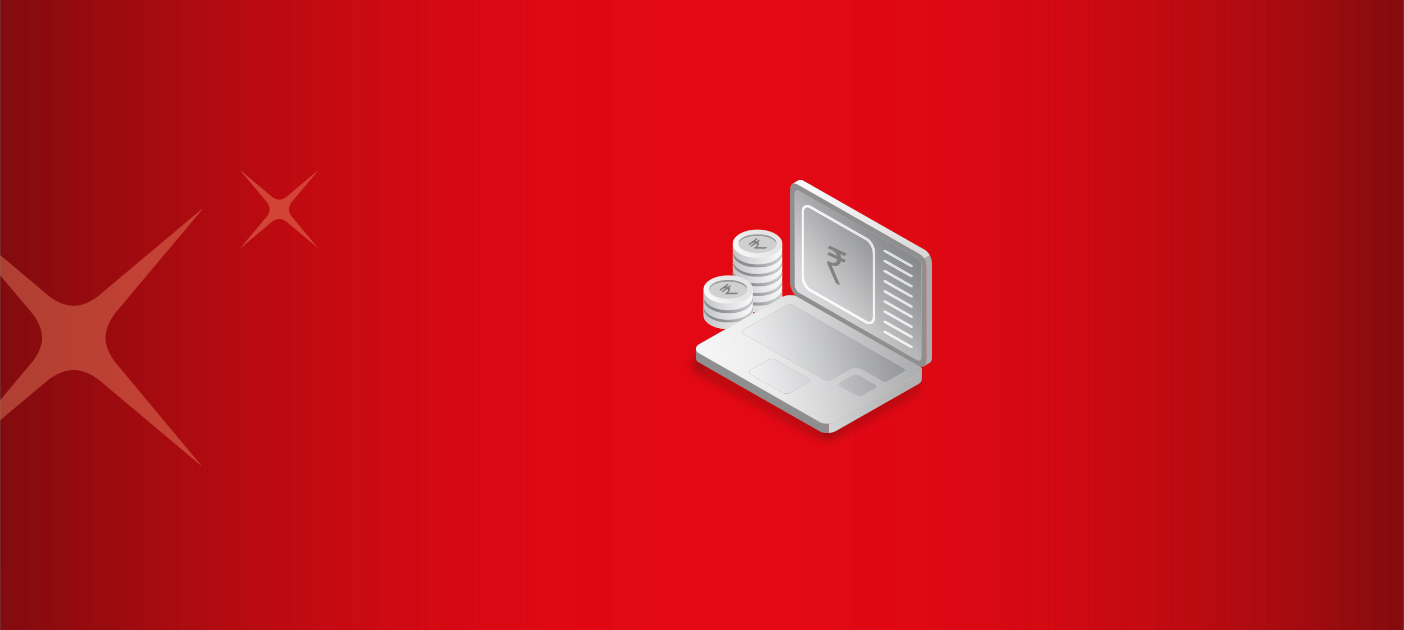- Save
- Invest
- Borrow
- Pay
- More
- Customer Services

How Can a Savings Account Help in Fund Readiness?
With how unpredictable finance and life in general can be, being prepared for unexpected events and long-term goals is crucial. Investment choices such as mutual funds and equities have inherent risks even if they have the potential to yield large rewards. Conversely, savings accounts offer a convenient and secure means of establishing your financial base.
However, how do simple savings accounts contribute to having readily available, liquid assets when you need them? In this blog, we precisely examine that by exploring Features of Savings Accounts, and how they help in achieving fund readiness.
Financial Stability: Building a Safety Net
There are always bound to be unforeseen circumstances in life that have the potential to disrupt your financial stability - such as medical emergencies or job loss. You can cope with these financial disruptions with an emergency fund instead of taking on high-interest debt or putting your long-term ambitions at risk. This safety net can best be built via a Savings Bank Account.
Immediate Access
Instant access to your money is a big benefit of savings accounts. This liquidity is essential in a number of circumstances:
-
Handling Unexpected Expenses:
Unexpected expenses for home repairs, car maintenance, or medical bills can arise at any time. Having emergency funds readily available in a savings account can help you manage these situations without resorting to high-interest credit options or experiencing financial stress. This safety net ensures you’re prepared for life’s surprises and can maintain financial stability.
-
Planned Short-Term Needs:
A savings account can help with gift buying, vacation funds, and down payment assistance for a phone or laptop. You can set up a budget and take out money as needed to make sure you don't go over your spending limit or deplete your long-term savings.
The Safe Haven: Leverage Peace of Mind with Savings Accounts
Savings accounts provide an important advantage: peace of mind - which goes beyond their easy access and role in helping prepare for emergencies. Savings accounts offer a secure shelter for your money in contrast to investing choices that change based on the state of the market. This is the reason why:
-
Guaranteed Principal:
Savings accounts provide principal protection, in contrast to stocks or mutual funds. Your deposits are guaranteed up to a specific amount by entities like the Federal Deposit Insurance Corporation (FDIC) insurance in the US and the Deposit Insurance and Credit Guarantee Corporation (DICGC) in India. This removes the possibility that market downturns will cause you to lose your principal investment.
-
Minimal Loss Risk:
Financial instruments deemed low-risk include savings accounts. Even though the interest rate isn't very high, there's very little risk of losing your money. They are perfect for accumulating an emergency fund or saving for short-term objectives where you can't afford to lose any money because of their stability.
Growing Funds Over Time
While savings accounts might not yield the same spectacular returns as mutual funds or equities, they do give a consistent, maybe low, interest rate on your deposits. Compound interest has the power to expand your savings substantially over time. This explains the working of compound interest magic:
Interest in a savings account not only adds to the principal amount but also generates interest on itself through the power of compounding. Over time, this snowball effect aids in the exponential growth of your money.
Getting the Most Out of Your Savings Account
Here are some tips to maximise the benefits of your savings accounts:
-
Compare Savings Accounts:
Don't choose the first one you find. To get the best deal, compare features and interest rates offered by several banks using a Savings Interest Calculator.
-
Maintain Minimum Balances:
If you maintain a minimum balance in your account, many banks waive monthly maintenance fees. When choosing an account, consider this benefit and set up automatic transfers to ensure you meet the minimum balance requirement. This strategy can help you avoid unnecessary fees and maximize your savings.
-
Use Automatic Transfers:
As mentioned above, configure transfers to be made automatically from your checking to savings accounts. This strategy guarantees constant saving and expedites the achievement of your objectives.
-
Review Often:
Keep an eye on your savings accounts as your needs and ambitions for money change. Think about if the current accounts still support your goals or if there are better possibilities out there.
Frequently Asked Questions
-
What if I use a savings account and need my money quickly?
Savings accounts offer easy access to your funds compared to other investment options. You can typically withdraw money via ATM, online transfers, or at a bank branch.
-
Are savings accounts better than checking accounts for saving money?
In general, yes. Savings accounts incentivize you to save more regularly by offering slightly higher interest rates and maybe imposing certain restrictions on withdrawals.









